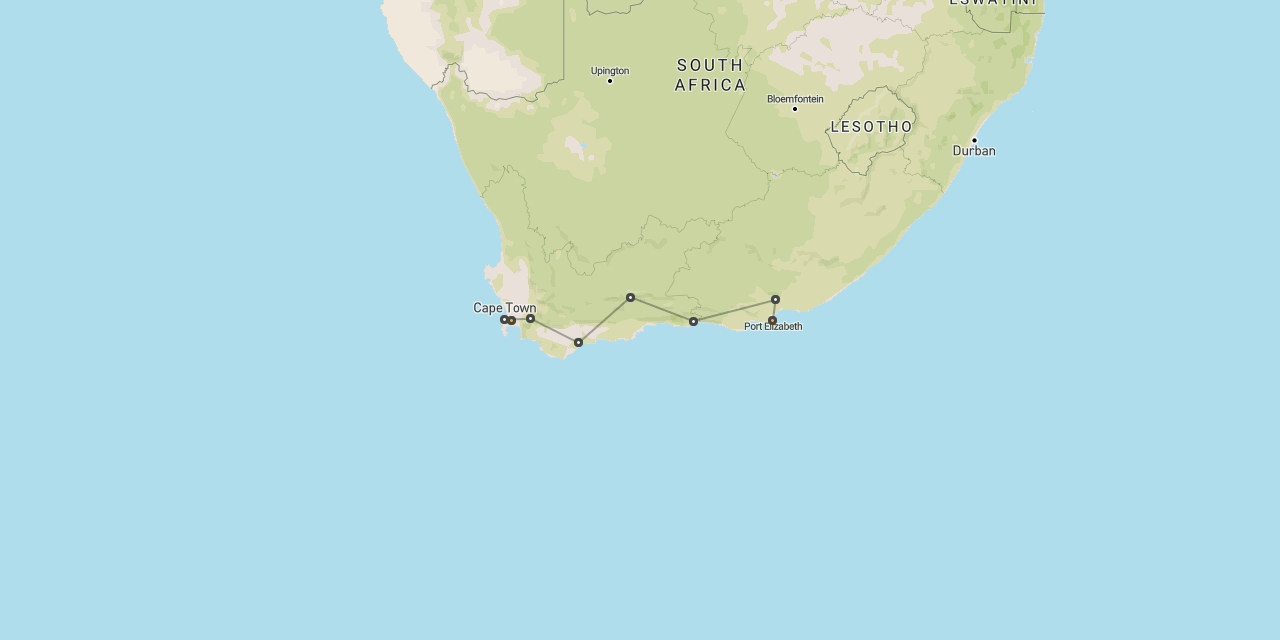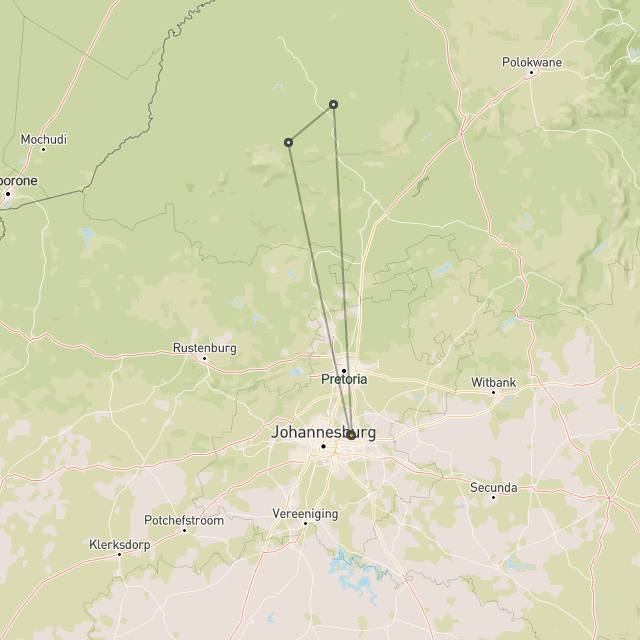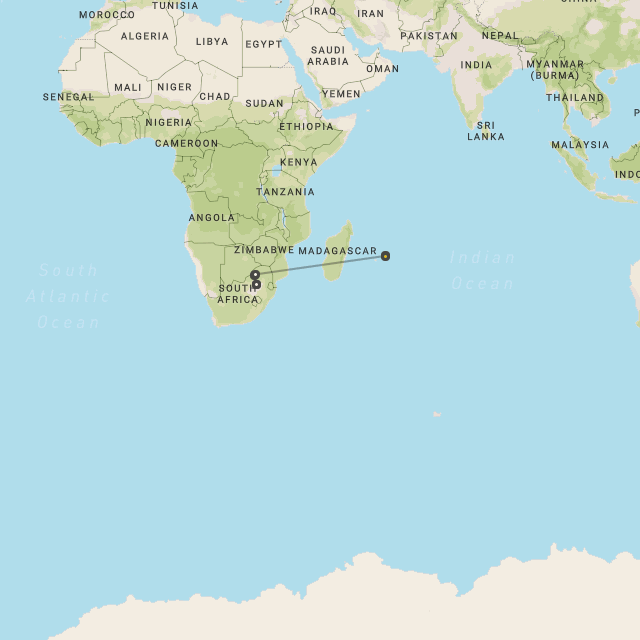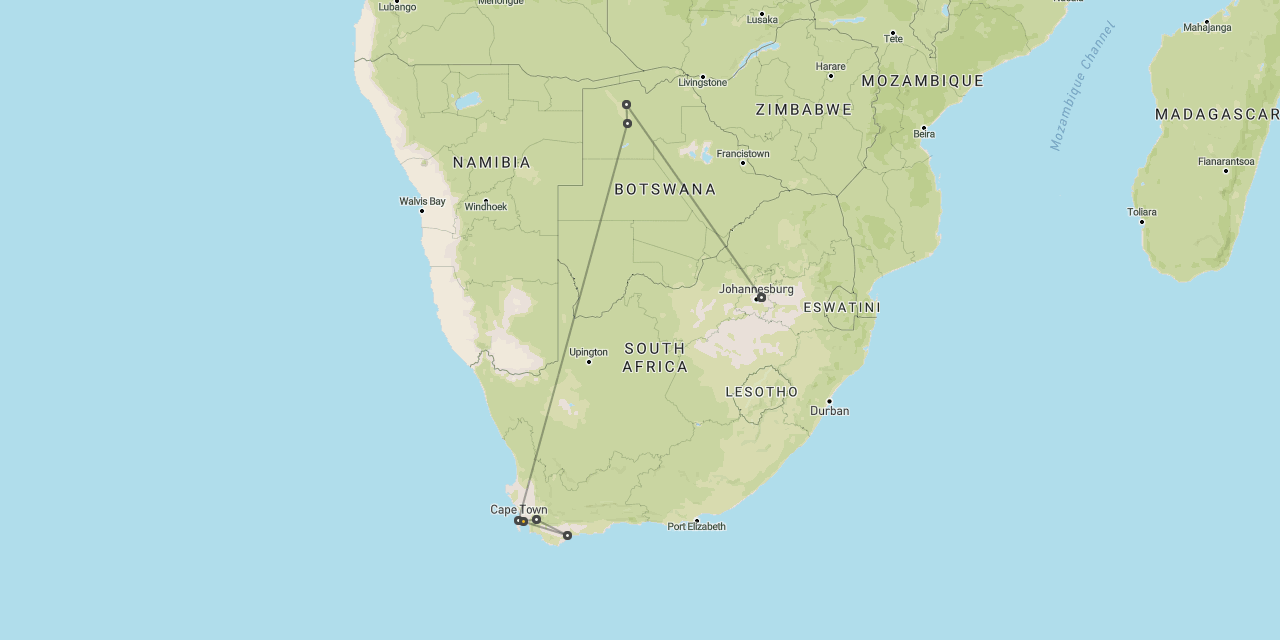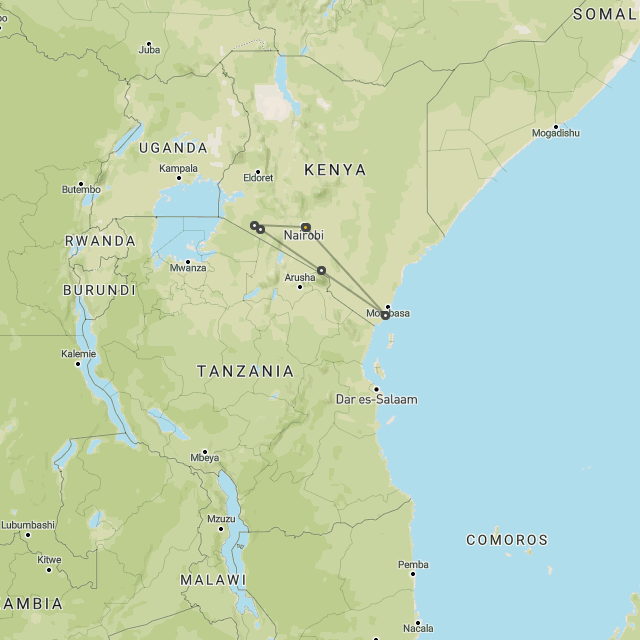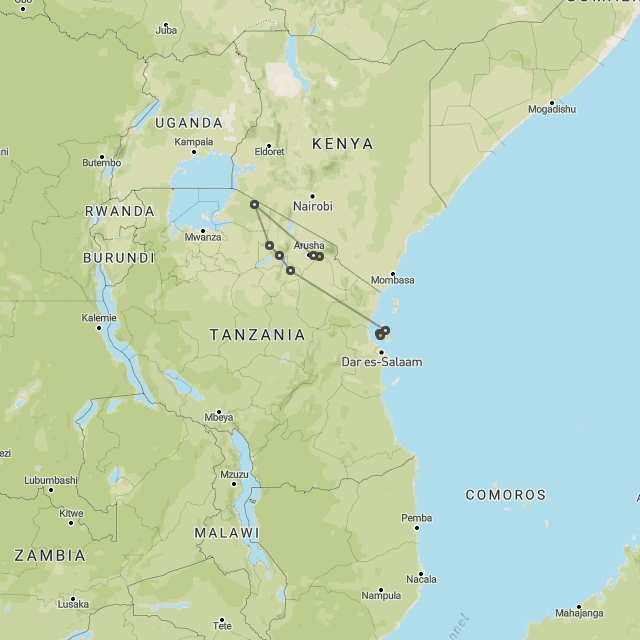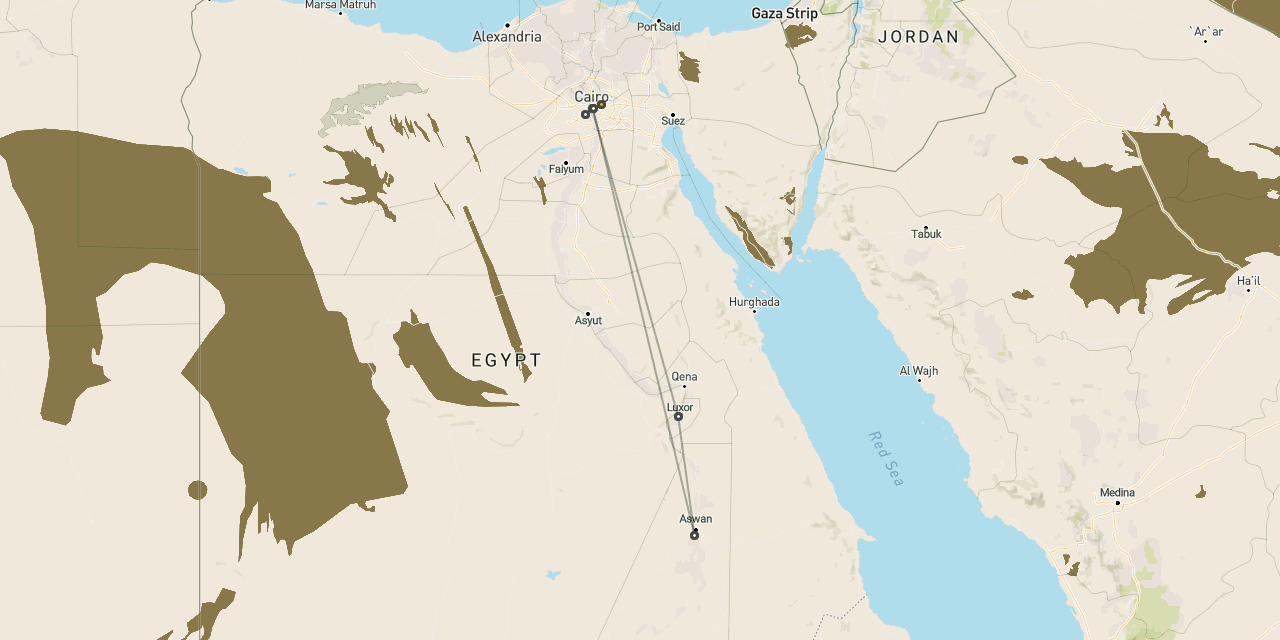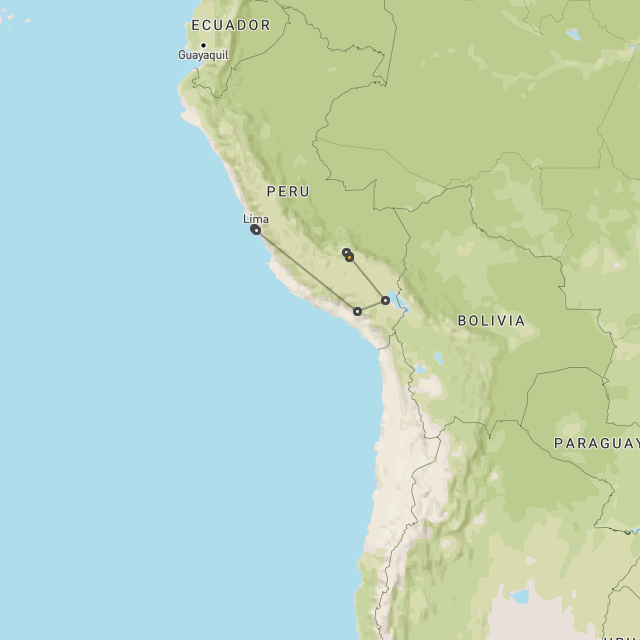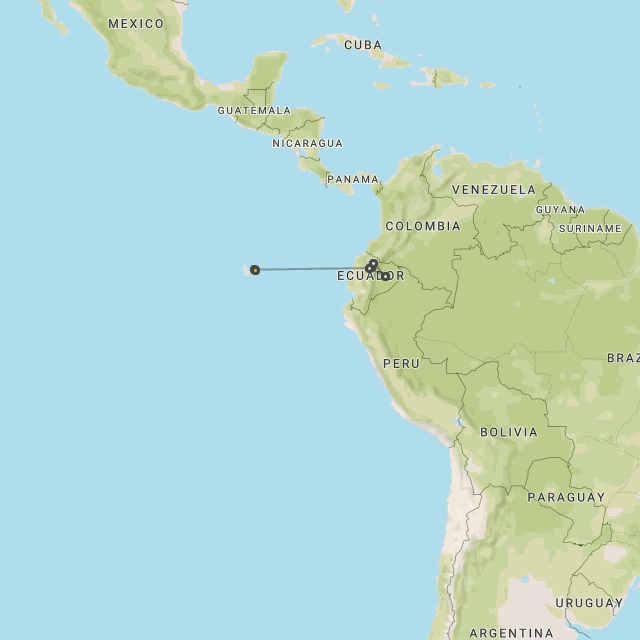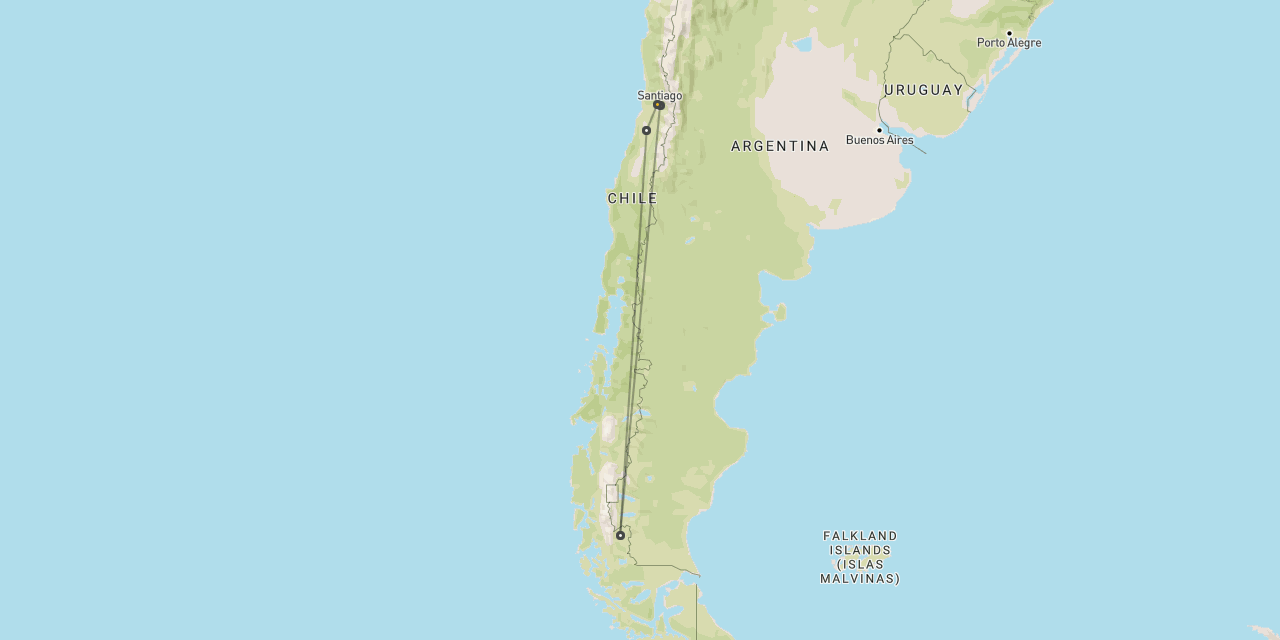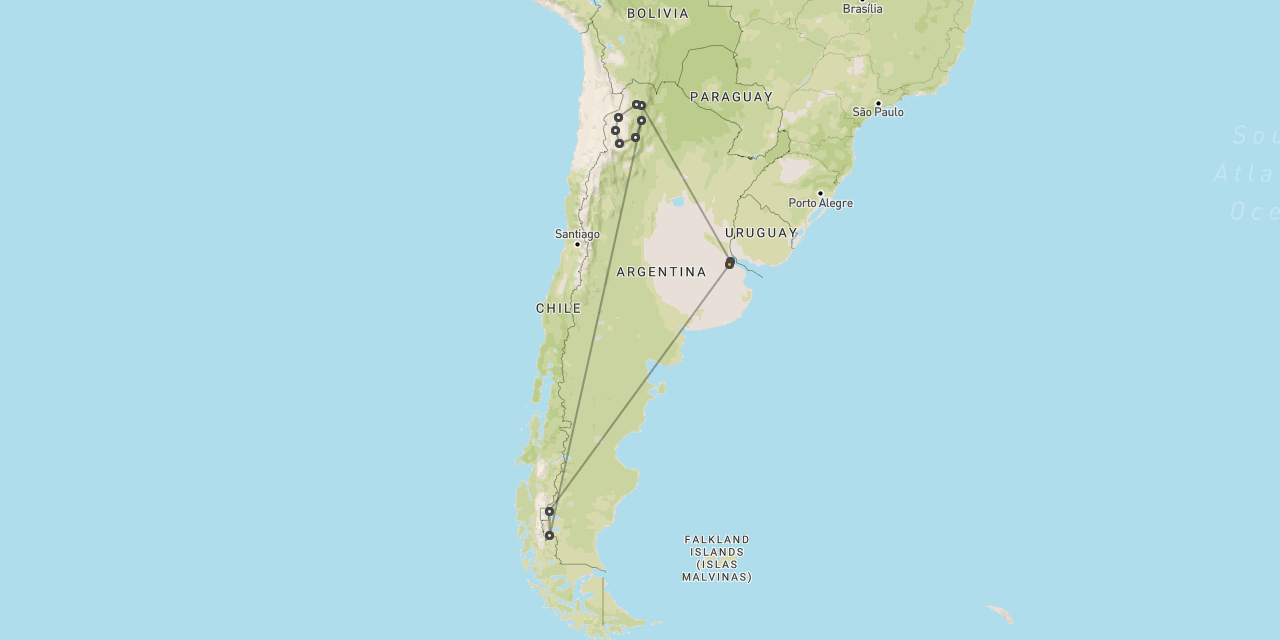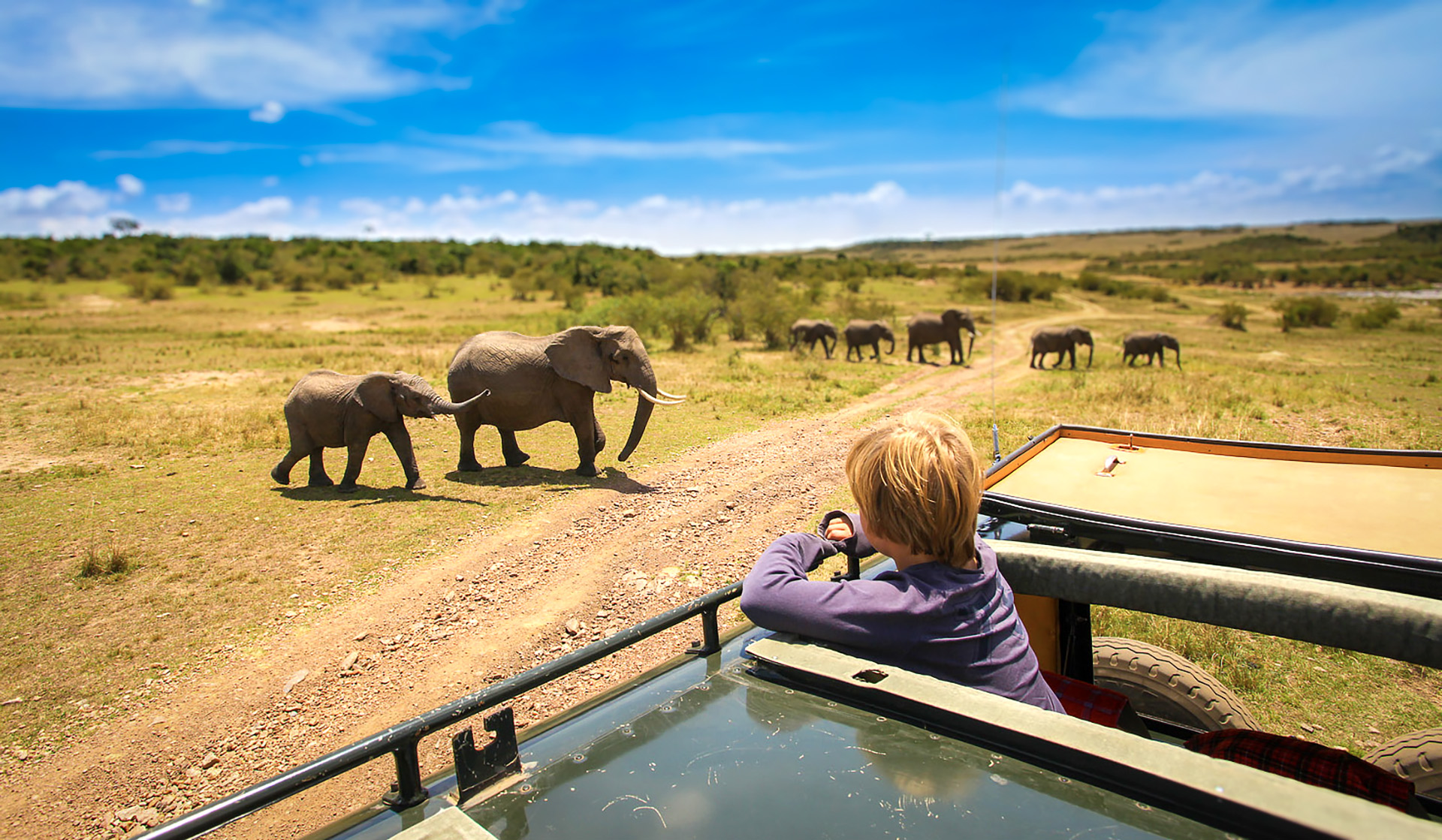
Family safaris
Family safaris
create fabulous shared memories
that literally last a lifetime
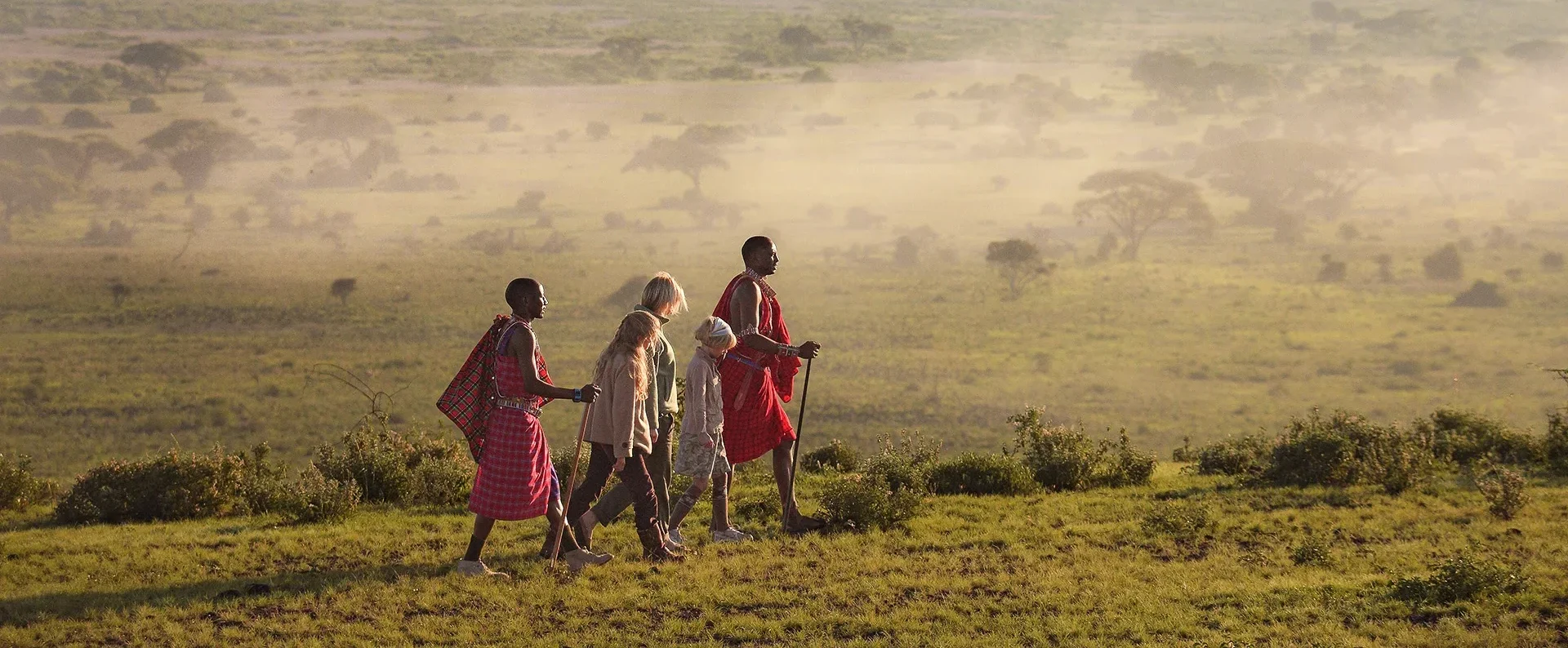
a good chance of being the best thing you will ever do
Family safaris are amongst the most precious things that life has to offer. There is nothing more magical than spending quality time together with your kids and other relatives.
Here at ATR, we are extremely experienced at putting together fabulous trips of this type.
Over the years, many of us have had our own children and have travelled with them from infants to adults. So we know what works from personal experience.
We understand all the nuances of planning a trip that will appeal to a mix of kids of different ages, characters, interests, attention spans, levels of confidence and endurance.
We also know, from the feedback of many thousands of big family trips, that we’re really very good at this. There can’t be many environments where the most common feedback is that this was “the best thing we have ever done”. That’s our ambition for every single trip.
simply tell us all about your family
and we will make sure to create the perfect trip
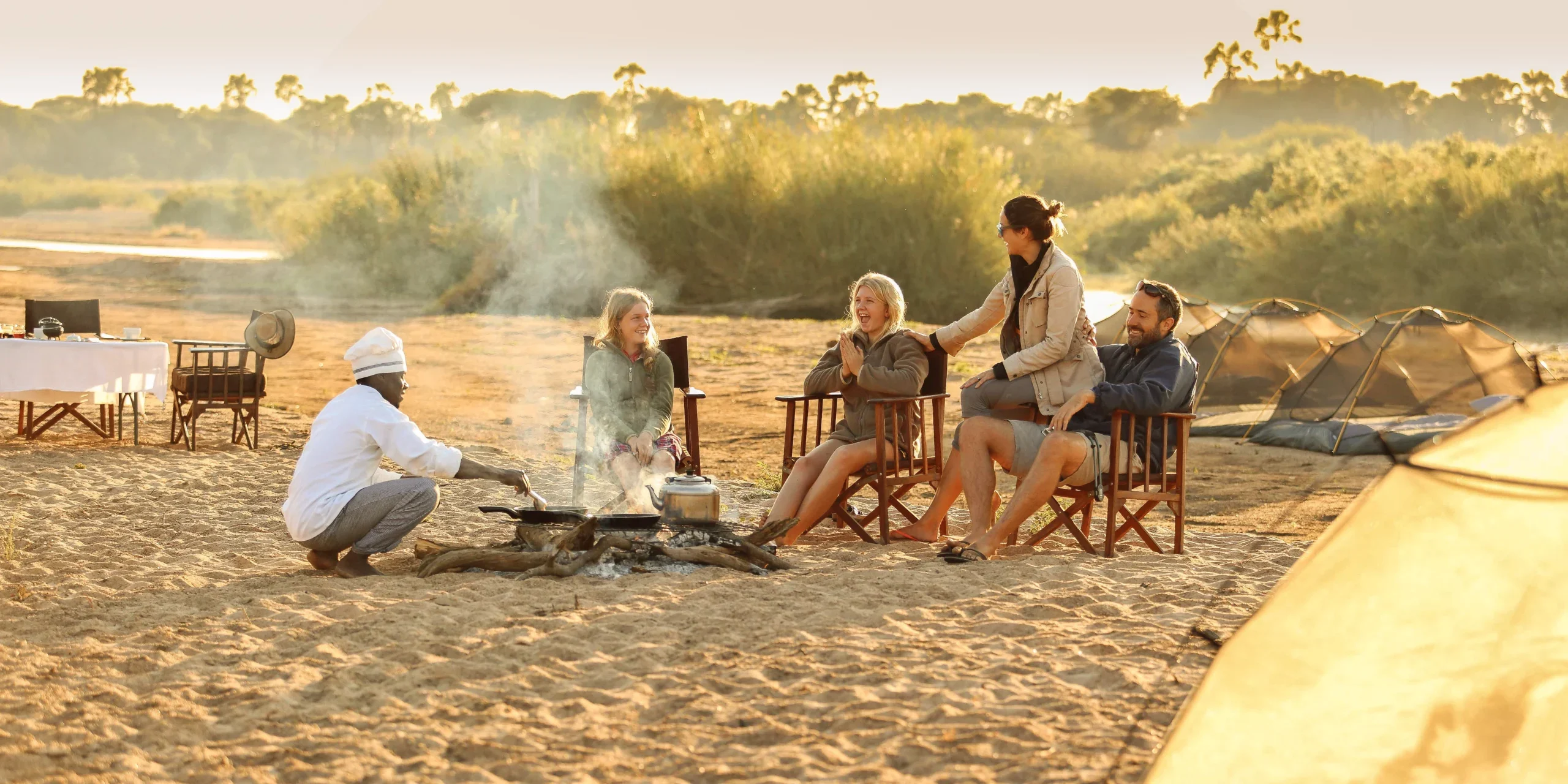
Frequently asked questions
There are very significant health issues associated with very young travellers in many countries..
The vast majority of safari areas are high health risk (most notably malaria) and really should be avoided with children this young. We are not legally permitted to give medical advice, but we are able to give our own personal opinions on such matters. All of us here have deliberately avoided giving antimalarial drugs to our own infants.
Areas with high temperatures and humidities should usually also be avoided due to the prevalence of other fevers and the fact that infants are less able to self-regulate their body temperatures.
Immediate access to good healthcare also needs to be considered, since even quite modest health problems can become serious quickly in infants.
In Africa, we generally recommend either not travelling with infants or sticking to the more temperate and healthy areas of South Africa around the Western Cape, Eastern Cape and possibly adding wildlife in the non-malarial Madikwe, Waterberg Mountains and Tswalu areas to the north of the country.
In South America we generally recommend that you avoid the Amazon Basin and other tropical areas, which essentially leaves most of Ecuador and Peru, almost all of Chile and the southern part of Argentina.
We would probably recommend avoiding the Indian Subcontinent completely, although you could consider Bhutan.
probably not a great idea
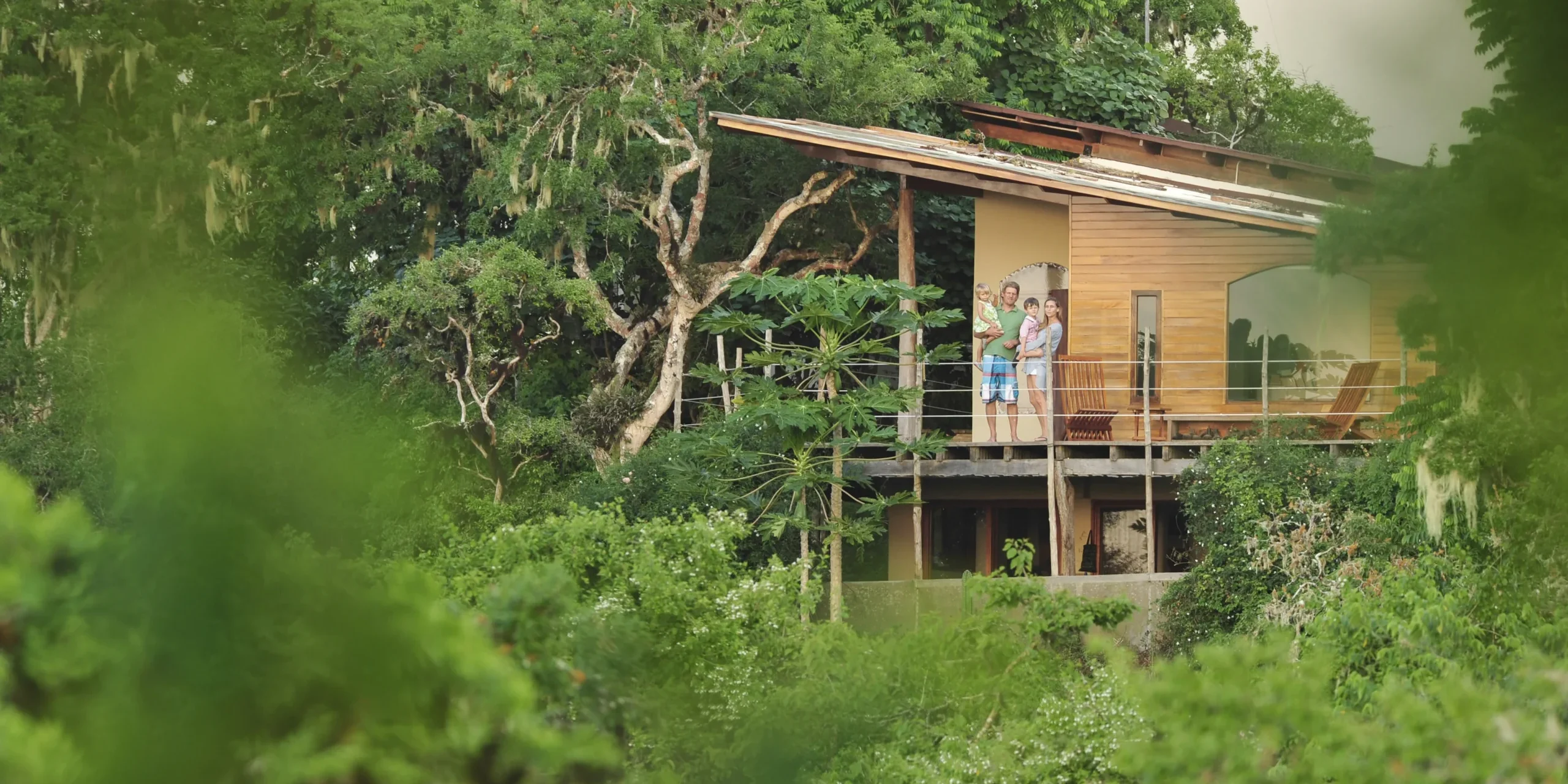
The significant health issues in many areas are tempered slightly by the fact that kids in this age range are now able to take certain preventative drugs, but bodyweight and temperature stability are still a significant concern.
The age at which you are comfortable exposing your children to malaria and therefore open up safari possibilities in many countries is a very personal decision. From around two years old they are more able to take anti-malarial drugs, but parents have very differing views on whether or not this is a good idea.
Some of us have taken our kids to malarial and tropical areas from around 2 years old, but generally we agree this is too young. Most of us have waited until our youngest child is 5 or 6 years old. Some prefer to wait until 7 or 8 years old.
If you decide that you cannot visit malarial areas then refer to the area recommendations for infants above. If you decide that you can visit malarial areas then refer to the area recommendations in the next section.
Another issue is age restrictions. Many safari lodges, especially those in malarial areas, do not permit small children, but there are exceptions in most areas.
On the upside, virtually all lodges which accept children in this age band offer very significant price reductions, usually in excess of 50% off the adult price.
In many safari areas, children of this age range must be accompanied by an adult at all times when on safari, there are significant risks from a range of predators if they are left unattended. The staff at many lodges are keen to help out with child-minding if needed.
Please do give us a call to discuss, we will always be open and honest about such things and, when in doubt, we will always err on the side of caution.
possible, but a little bit too young
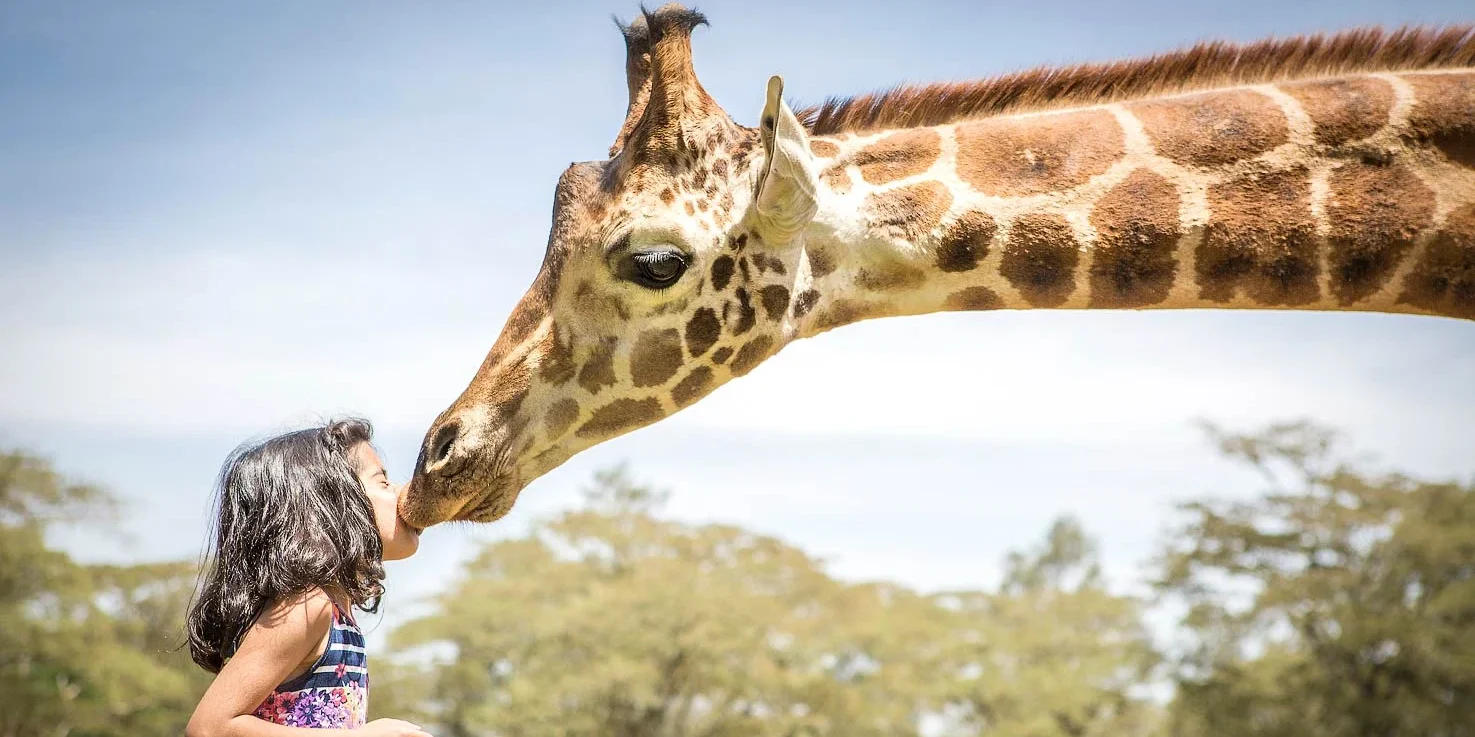
This is a great age range for safari travel in almost all countries.
With these ages in particular we find that there tends to be a wide range in the behaviour and needs for different children. Some kids as young as five are well-behaved, trustworthy, able and willing to take part in the usual camp activities. Other children as old as twelve are less suited to mix in with adult guests and need more child-focused attention.
We are more than happy to cater for all types of children, although it is extremely important that you let us know about their characters in advance, so that we can help put together a perfectly tailored trip.
In Africa, we assume that for children in this age range we can now include malarial areas so, depending on your inclination, one might look at a safari in Botswana, Kenya, Namibia, South Africa, Tanzania, Zambia or Zimbabwe. However we do generally prefer to stick to the Jun-Oct dry season where the health risks are at their lowest.
Most safari camps accept children in this age range, although there are many which start at 8 years, a decent number at 12 years and a few more hardcore options which start at 16 years. Most also offer significant price reductions on the adult price, especially for children sharing a room with parents.
The greater issue in this age group tends to be which activities the children are permitted to join. Many safari camps permit children to stay in the lodge, but not to join vehicle safaris unless a private vehicle is taken, at considerable extra cost. More dangerous or arduous activities, such as walking safari or canoe safari, they may not be able to join at all.
Some camps operate special activities designed for children, such as vehicle safaris, walks and tracking lessons, bow and arrow shooting, that kind of thing. The danger of going too far in this direction is that it can all start to become a bit goofy, the presence of a ‘kiddie club’ can be a worrying sign in terms of safari authenticity.
Trips to Egypt are great for this age range.
In South America, the whole continent is now wide open, since you can also consider the Amazon Basin (although it remains marginal from a health perspective, in our opinion).
On the Indian Subcontinent, the healthy areas in the Himalayas (Bhutan, Nepal, Ladakh) are all good. You may also be happy to visit the tropical islands of the Maldives and Sri Lanka. However, we are still rather nervous about travel in the majority of India, even in the preferable Nov-Mar cool dry season.
heading into a really nice age range
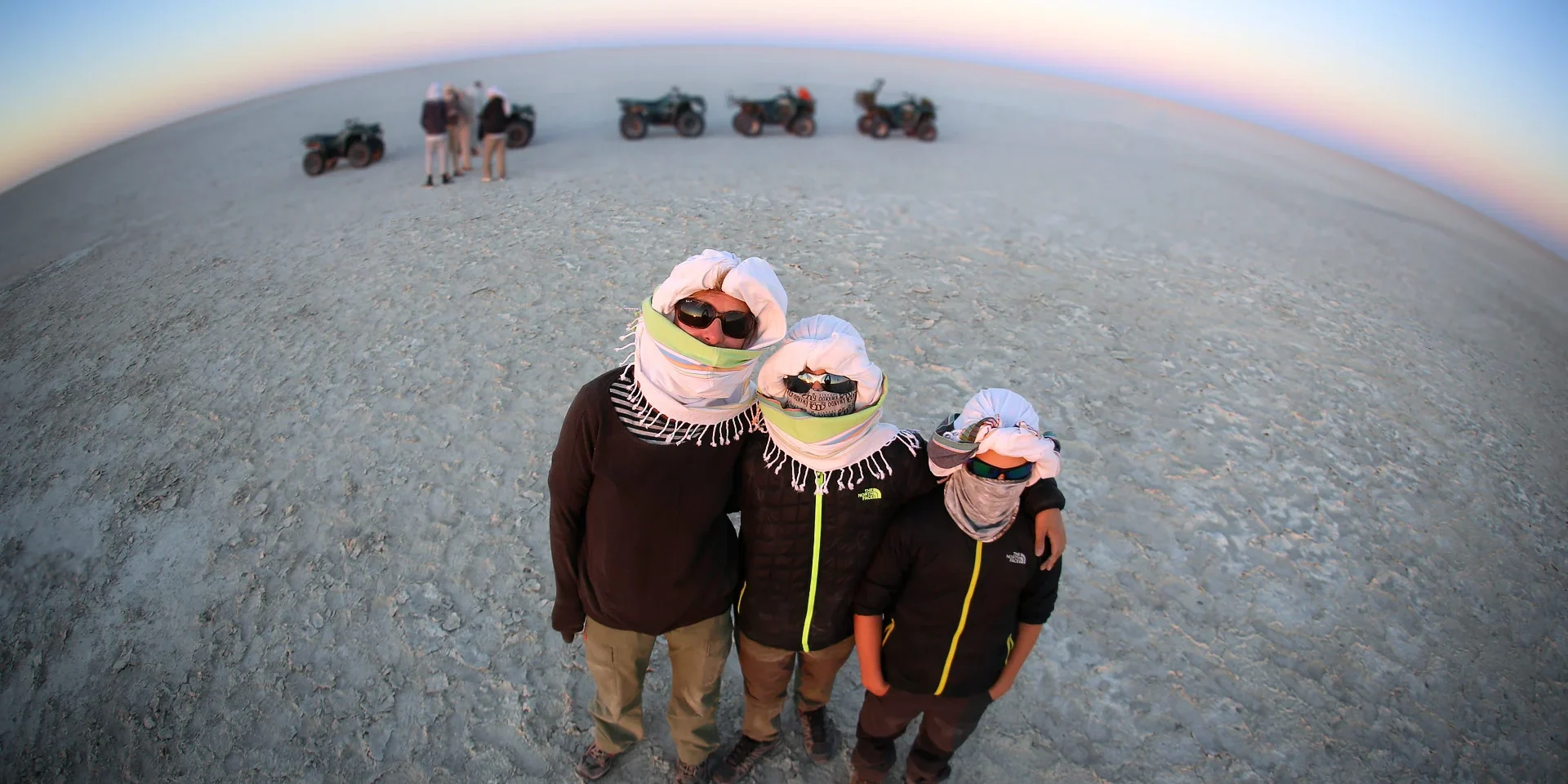
Trips with kids this age are golden, rare opportunities to enjoy that full family togetherness before they start to drift away from the family nest.
All areas are now in the mix.
We have found that kids this age are often not exactly keen on the whole idea during the planning stage and whilst out on the trip itself can, on occasion, question why they are having to endure the experience!
But virtually without exception they do eventually get into the swing of things, leading to wonderful shared experiences and memories kids and parents alike. So don’t worry if it feels you are having to coerce them into it at first, they will thank you for it in the end. Albeit without actually thanking you, of course.
These trips are also an important chance for older kids to broaden their perspectives on the world, lessons that they will take with them through life. So do think about pushing the envelope a little, interacting with local people, getting involved in philanthropic projects and pushing your comfort boundaries a little.
Virtually all areas, lodges and experiences are open to teenagers, although many lodges now charge full adult price, which does mean that trips can get really expensive.
really the golden age range
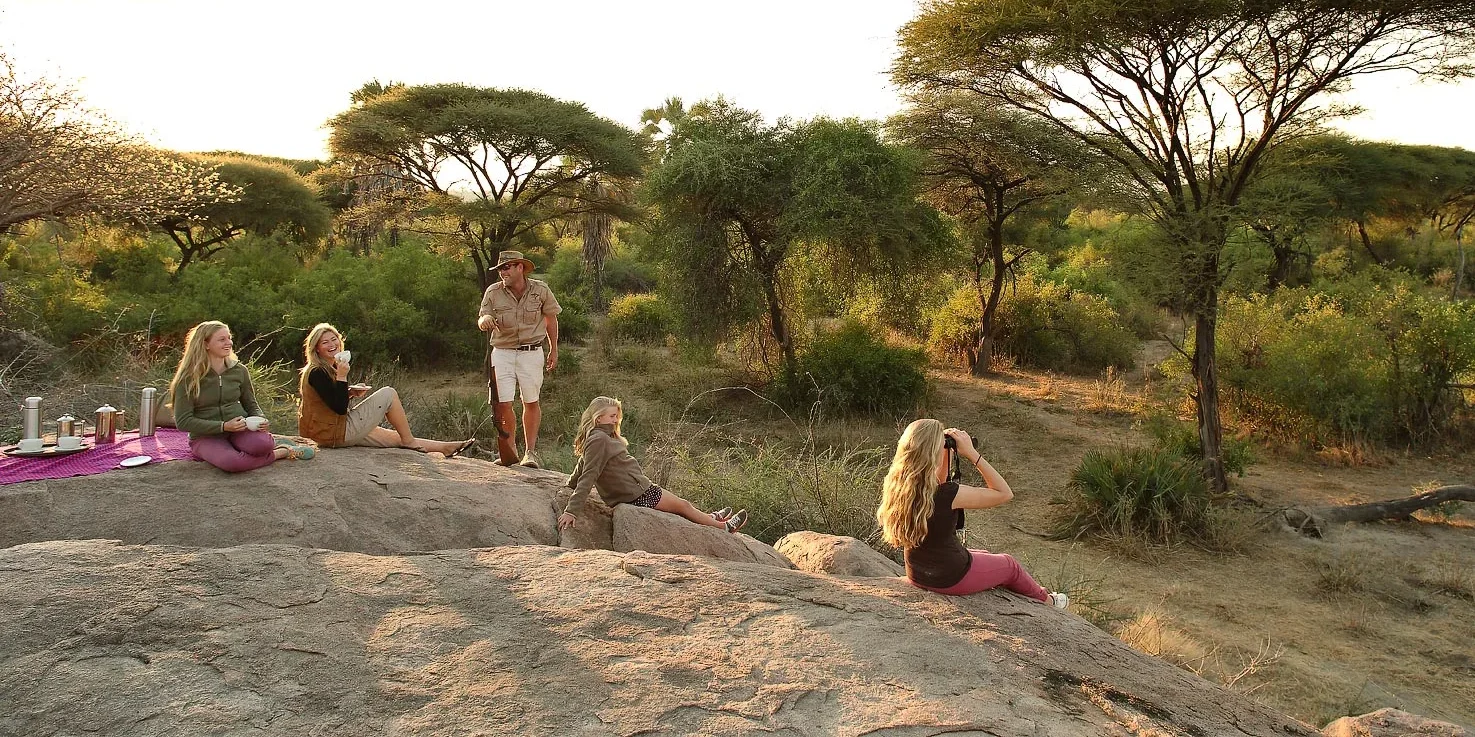
Travelling with adult kids is a luxury that not many families are able to enjoy as they tend to want to do their own thing. But a big safari can sometimes prove to be a large enough carrot to tempt them into joining you!
The paragraph in the previous section about helping to round and develop young adults by exposing them to diverse cultures is still very valid for older offspring, although obviously at this age the dynamics do change.
Sometimes young adults between 18 and 28 travel to these countries on their own to participate in volunteer work, perhaps for several weeks or months, with their families joining them for a shorter trip either in the middle or at the end of their tour of duty. We often handle the family part of these trips, coordinating between kids who are already in-country and parents who are still back home.
There are very few lodges which do not treat an 18 year old as a full adult in terms of price, so other techniques have to be used to keep the budget under control.
a rare and precious opportunity for family time
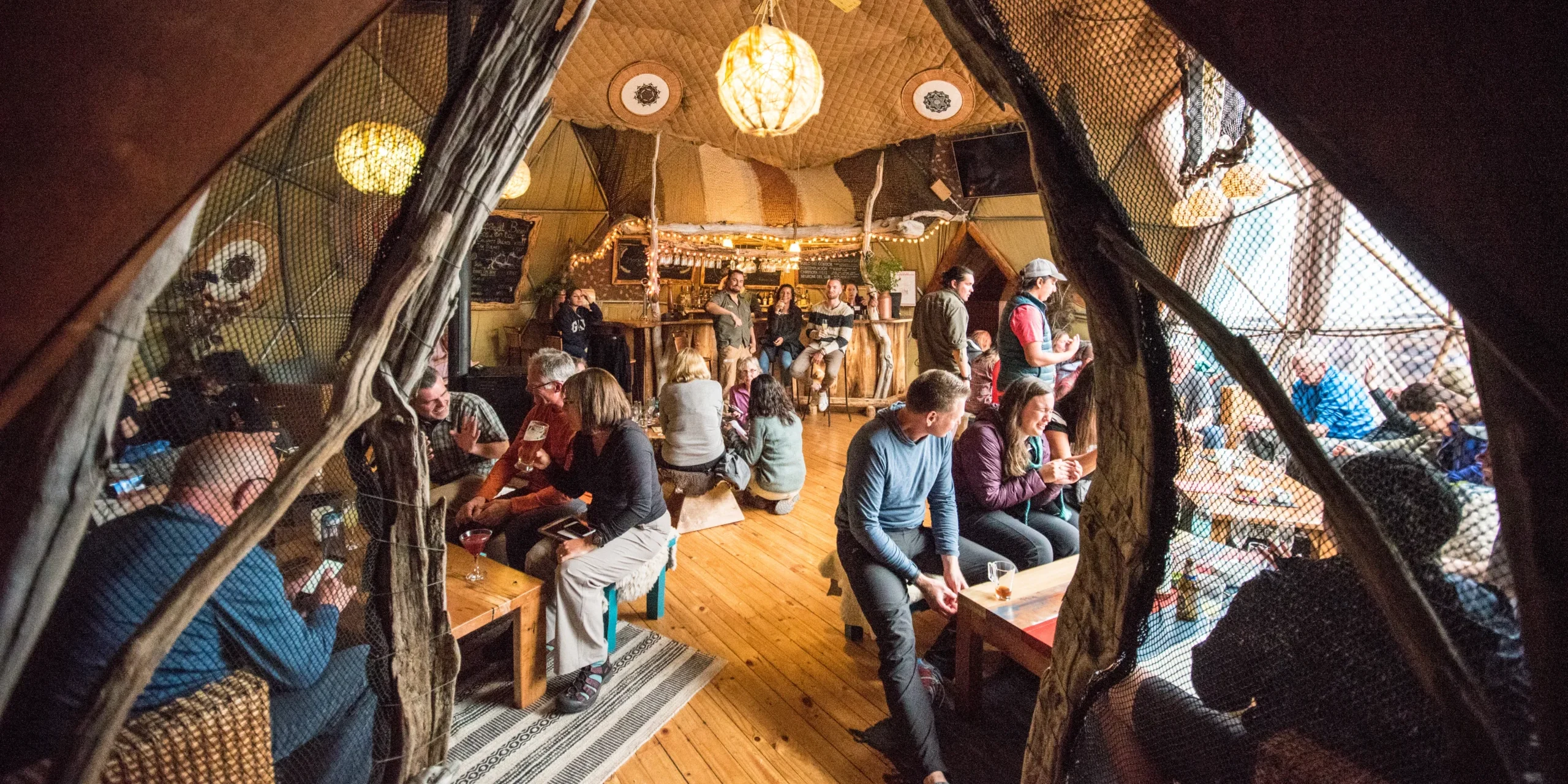
When we are specifically talking about travel into areas where there is potentially dangerous wildlife around, almost all areas are reasonably safe, so long as they adhere absolutely to the rules laid down by the camp managers and guides.
We are aware of very few serious incidents involving children in recent decades. Nevertheless, an awareness of the key issues is very important.
Almost all of the lodges and camps in wilderness areas are unfenced, so animals are free to wander in and out.
Smaller children are at risk, particularly from animals such as leopards and jaguars, which mostly hunt around dawn and dusk. Although attacks are extremely rare, they do happen and small children need to be closely accompanied at all times.
Many of the lodges are set up on elevated decks, which could therefore be considered slightly safer for small kids, although this could also encourage a false sense of security.
All kids, and adults for that matter, need to understand that running in wild areas is strictly forbidden, either around the camp or out in the bush. This creates a serious risk of triggering hunting behaviour in animals which would otherwise usually have no interest in humans. Kids often get tempted, for a range of reasons, to run between the rooms. This is extremely dangerous and must be avoided.
Similarly, when out on vehicle safari, when you are in close proximity to animals such as elephants or lions, it is essential that children remain seated, still and very quiet.
it is critical that children obey the rules
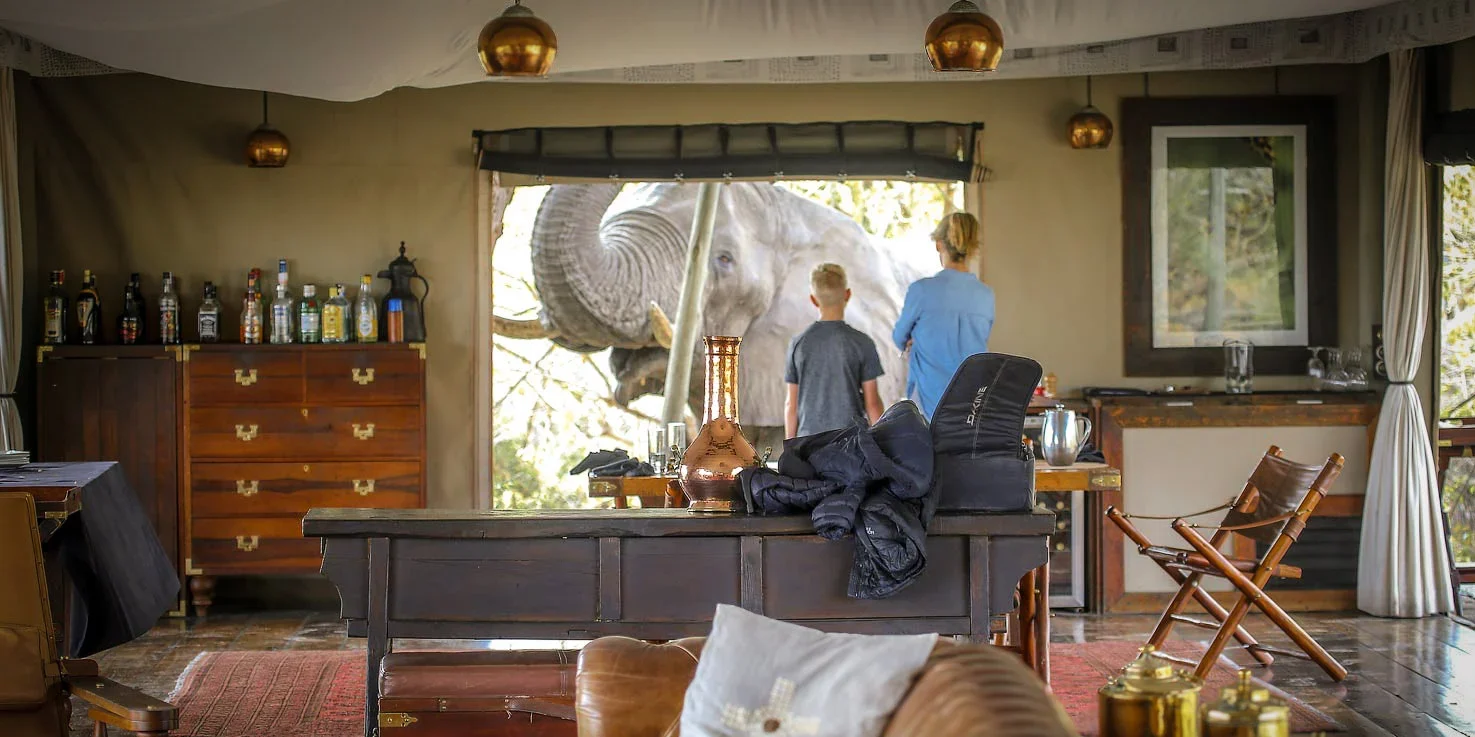
Some families enjoy more private experiences.
There is a good range of properties which are designed for the private use of a single group of guests.
There are also many camps which are sufficiently small that they can be booked on an exclusive basis.
The larger the group size, the more able we are to create really exclusive experiences, using private camps and chartering planes and vehicles rather than using scheduled transport services.
However, it is perhaps worth pointing out that one of the great joys of a proper safari is meeting and interacting with other guests. This is particularly true for kids, who (despite your prior concerns) are often thrilled to join other adults around a big table. The conversation is so easy when you have exciting animal sightings to talk about.
The best camps for this purpose are those where you can stay in a private annex, whilst also having access to the main lodge and where you can choose to take your meals at either location.
complete privacy can be both a positive and a negative
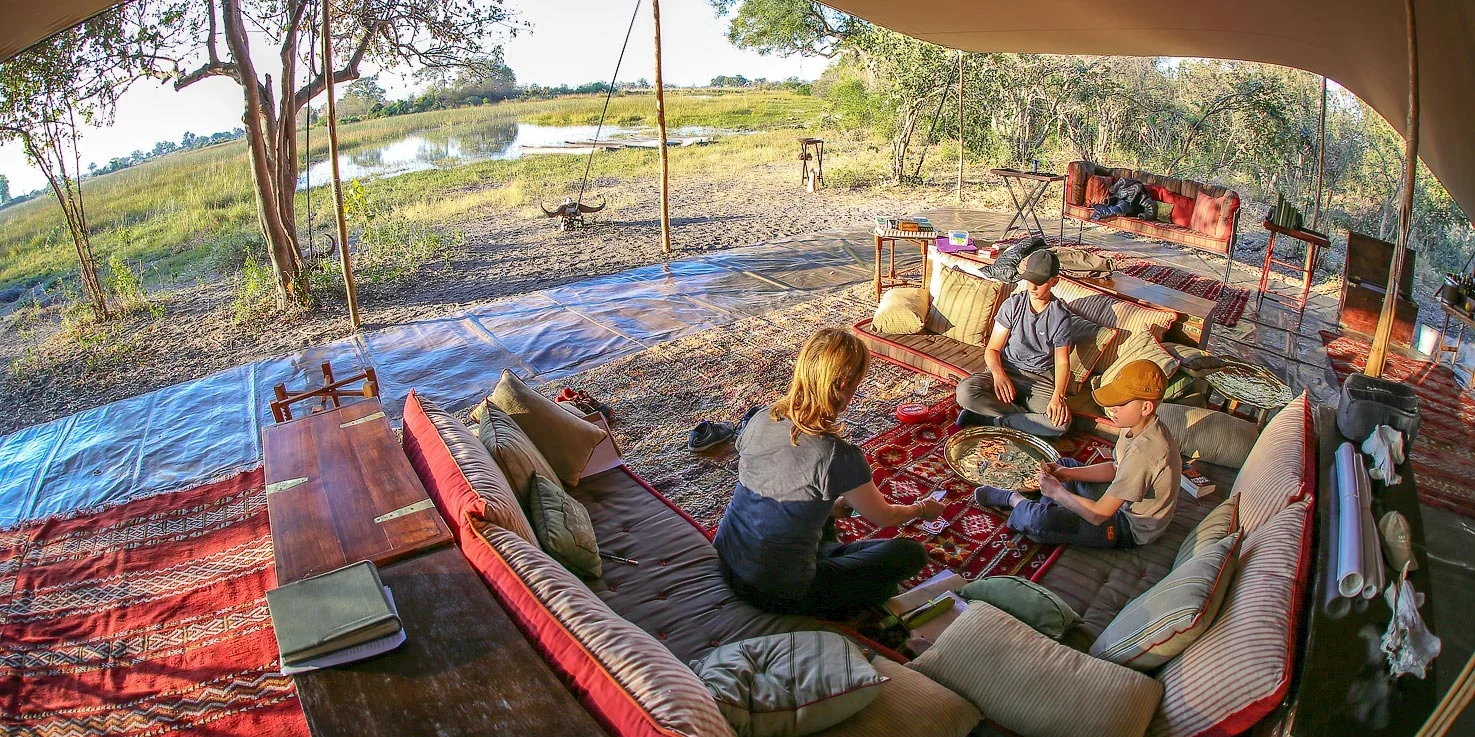
For a great safari trip, you probably need to be thinking in terms of 14-21 nights.
However, we understand that it can be difficult for the whole family to find this amount of time, so we work hard to squeeze what we can into as little as 7 nights.
Many trips combine core safari nights out in the wilderness, with time in other more conventional locations.
The most common limiting factor on the length of the core safari portion tends to be the budget, since it is these nights which are typically the most expensive (often by a massive margin).
We usually recommend spending as much time as possible on safari. For most people, that usually means 6-14 nights, split between 2-4 different lodges.
When we are trying to fit into a more modest budget, or if guests specifically do not want to spend too much time on safari, we sometimes reduce that to three nights, which is the usual recommended minimum for a stay at a single lodge.
The longer your safari, the wider the range of experiences, the more quality sightings and the more hypnotic and entrancing the overall experience.
usually the longer the better
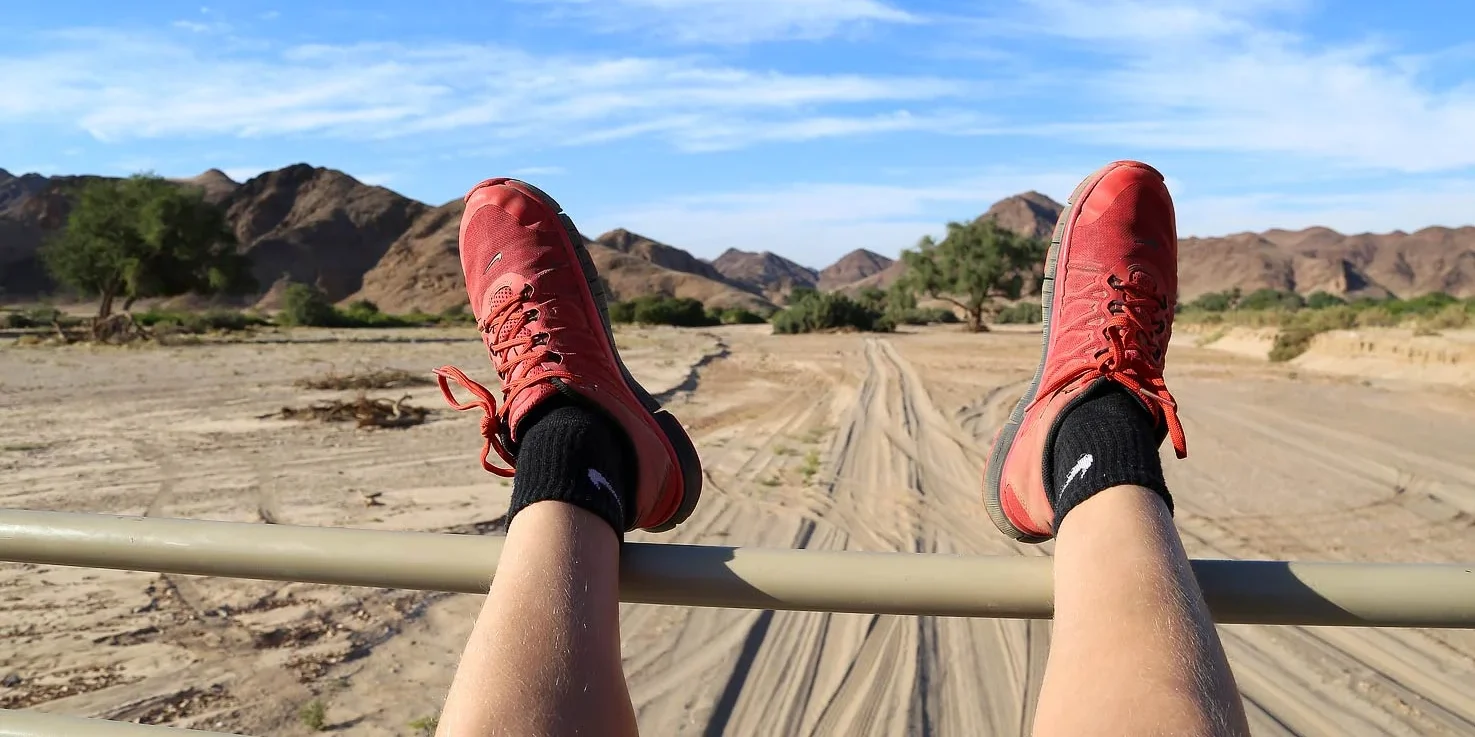
The centrepiece of your trip will most likely be 3-14 nights on safari out in the wilderness.
You may well want to combine that safari portion with time in other complementary areas. You may do this to add variety of experience into the trip, or to save money (since the safari nights are usually the most expensive). Or both.
Many safari areas are within reach of beach areas, quite often in the tropics, which opens up possibilities for diving and other watersports, possibly even some relaxation!
Almost all safari areas can be combined with rural areas and urban locations, which can provide opportunities for a vast range of activities and cultural experiences.
We love to build longer trips with loads of diversity. It’s so great to expose the kids to a wide range of experiences, so long as it doesn’t get too fast-paced and hectic.
Having said that, we also love the purity of a safari-only trip, a more detailed focus and less moving around. In fact, that could be our ultimate favourite type of trip.
exposing the kids to a wide range of experiences
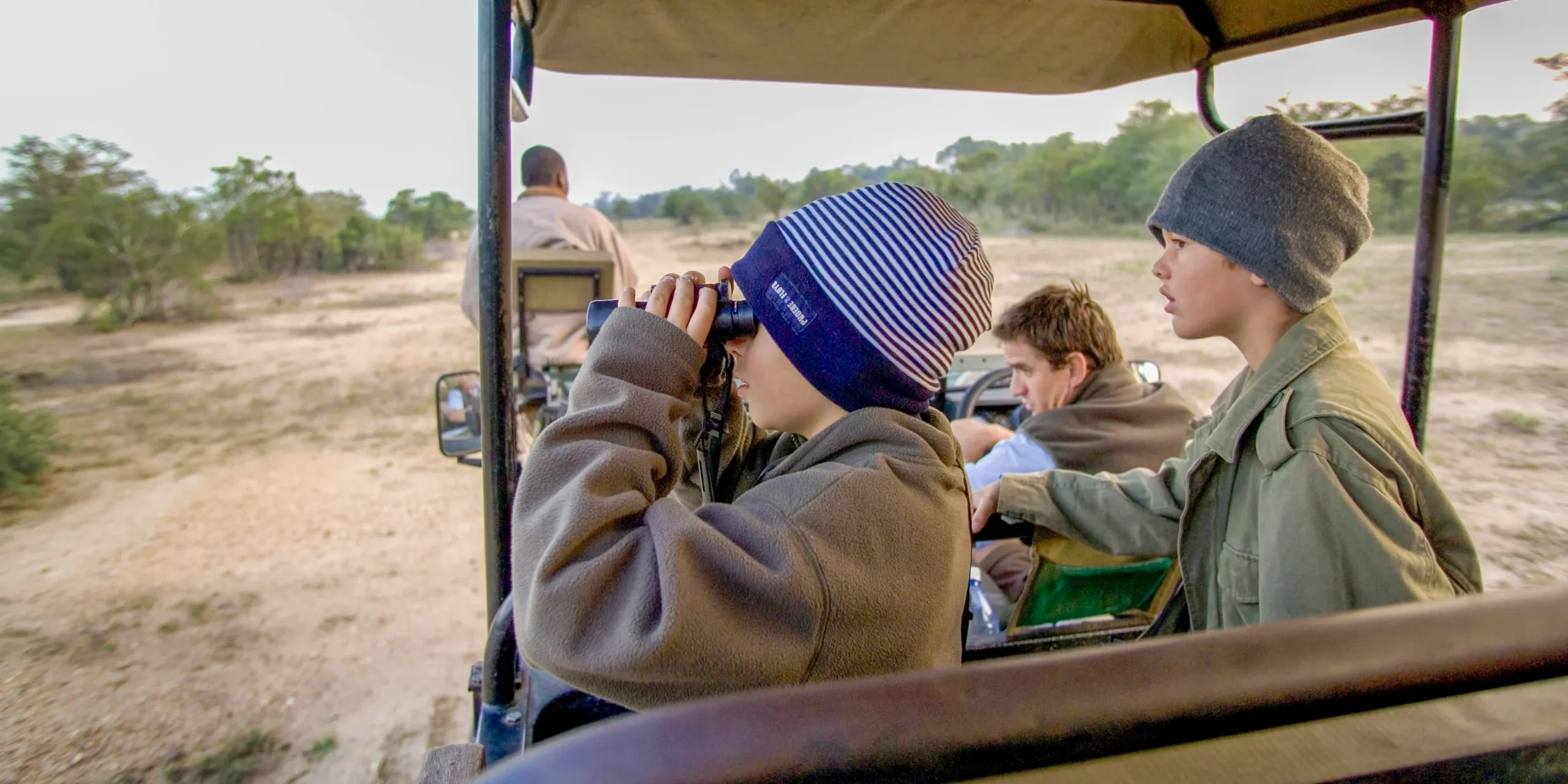
Depending on the ages of your children, the dates when you can travel may be strictly limited.
The bottom line is that there are always great places to go, at any time of year, but you do need to choose carefully.
Needless to say, travelling during school vacations can lead to high air fares and high visitor numbers, so plans need to be made carefully and, usually as far in advance as possible.
If you are looking at the Jul-Aug northern summer break, then most of the safari areas in Africa (Botswana, Kenya, Namibia, South Africa, Tanzania, Zambia, Zimbabwe) are enjoying their cool dry season, which is great. The northern half of South America (Brazil, Ecuador, Galapagos, Peru) is also good.
When it comes to the Dec-Jan vacation season, safari options in Africa are restricted to drier areas (Botswana, Namibia, Northern Kenya), plus the migration areas of Serengeti in Tanzania. Egypt is great. The southern Patagonian part of South America (Argentina and Chile) are really good. The Indian Subcontinent is also strong at this time (India, Sri Lanka).
At Easter, safari options in Africa are still restricted to drier areas (Botswana, Namibia, Northern Kenya). Egypt is great. Almost the whole of South America is in a shoulder season, so the date of Easter will have a major bearing. The Indian Subcontinent remains strong at this time, although getting warmer (India, Sri Lanka).
For detailed seasonal overviews for every country, please refer to the When to Travel link at the top of the page.
Or just give us a call and we can chat through the options.
the frustrating limitations of school timetables
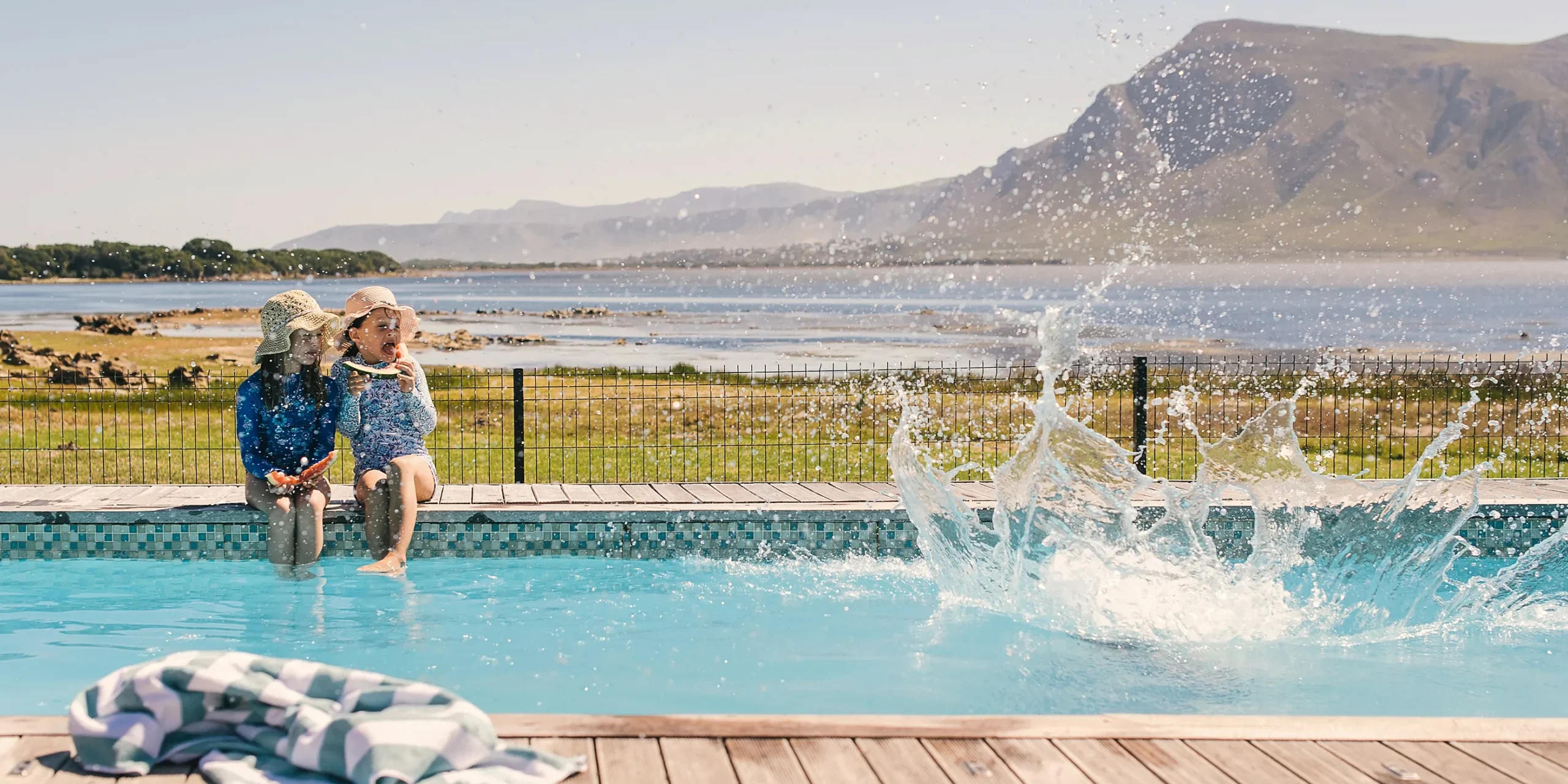
If your children are 6 years and older, then you have a very wide range of lodges and hotels to choose from. Here are some key features that you might like to look out for.
Most safari lodges have family suites, usually with two rooms being connected via a shared corridor or lounge and two separate bathrooms. If one of these is not available, then the parents may need to split so that none of the younger children are left to sleep in a tent on their own.
Most lodges have swimming pools, but often these are located in close proximity to the main public areas. We much prefer pools in totally separate areas, so that kids can splash around and have fun, without worrying about disturbing other guests.
A few lodges have a separate annex, which can operate separately from the main lodge and may also include a small swimming pool.
Some lodges offer special programs of child activities. Generally speaking, this should not be necessary, since all good guides are expert at adapting the experience to suit everyone in the group.
Many lodges, especially those out in wilderness areas (where the staff are resident), are able to offer child-minding. In reality, this usually comes down to one of the ladies from the laundry or kitchen earning a little extra money by coming to sit with your kids. This is most commonly done during the evening, when younger children may take an early dinner and then go to bed, leaving the parents to stay up later into the evening. It may be worth mentioning this to us in advance, if it is of interest to you.
To choose specific lodges for your family trip, have a chat with one of our Safari Experts, let them know what you have in mind and let them show you the best options.
Alternatively, you can use the Explore button to research all the best camps in Africa and beyond.
a place where the kids can relax and have fun
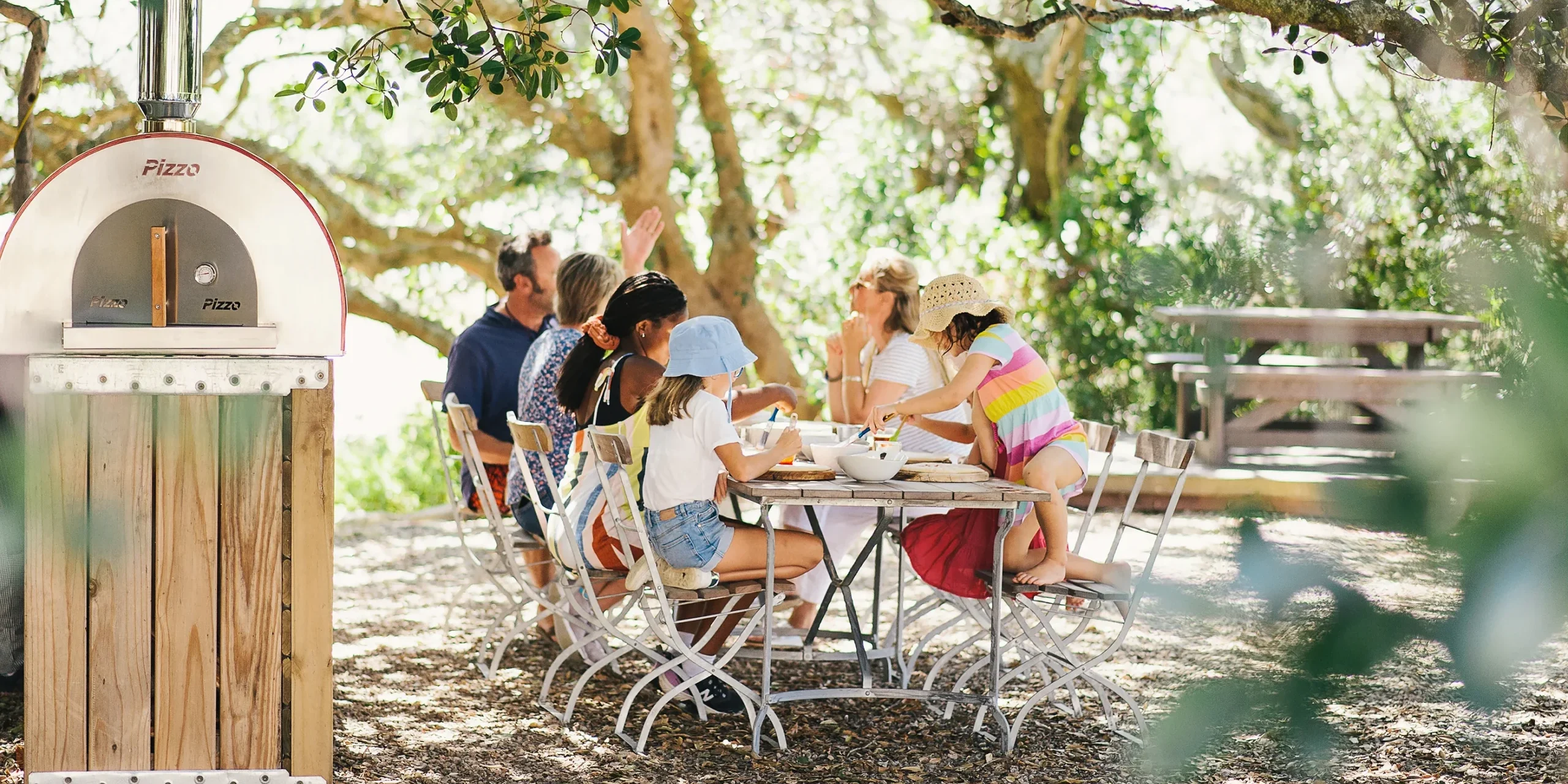
Many lodges in wilderness areas have age restrictions on certain more risky activities.
If some children are not able to join a safari activities, the rest of the family can usually go out, whilst the lodge provides a member of staff to mind those which remain back at base.
For walking safari the limit is usually around 16 years, although there is often some considerable room for discretion, especially for larger, calmer and more reliable teenagers. You may find that a responsible 12 year old is able to join a walk on more open terrain.
For canoe safari and kayaking there is usually a lower age limit around 12 years. This may also be flexible if the water conditions at the time of year and in the specific location are judged to be even safer than usual.
For night vehicle safari some camps set a lower limit of around 8-12 years, although it seems to be generally easier for guides to waive this requirement, especially if your group has exclusive use of the vehicle.
age limits may apply to more dangerous or arduous activities
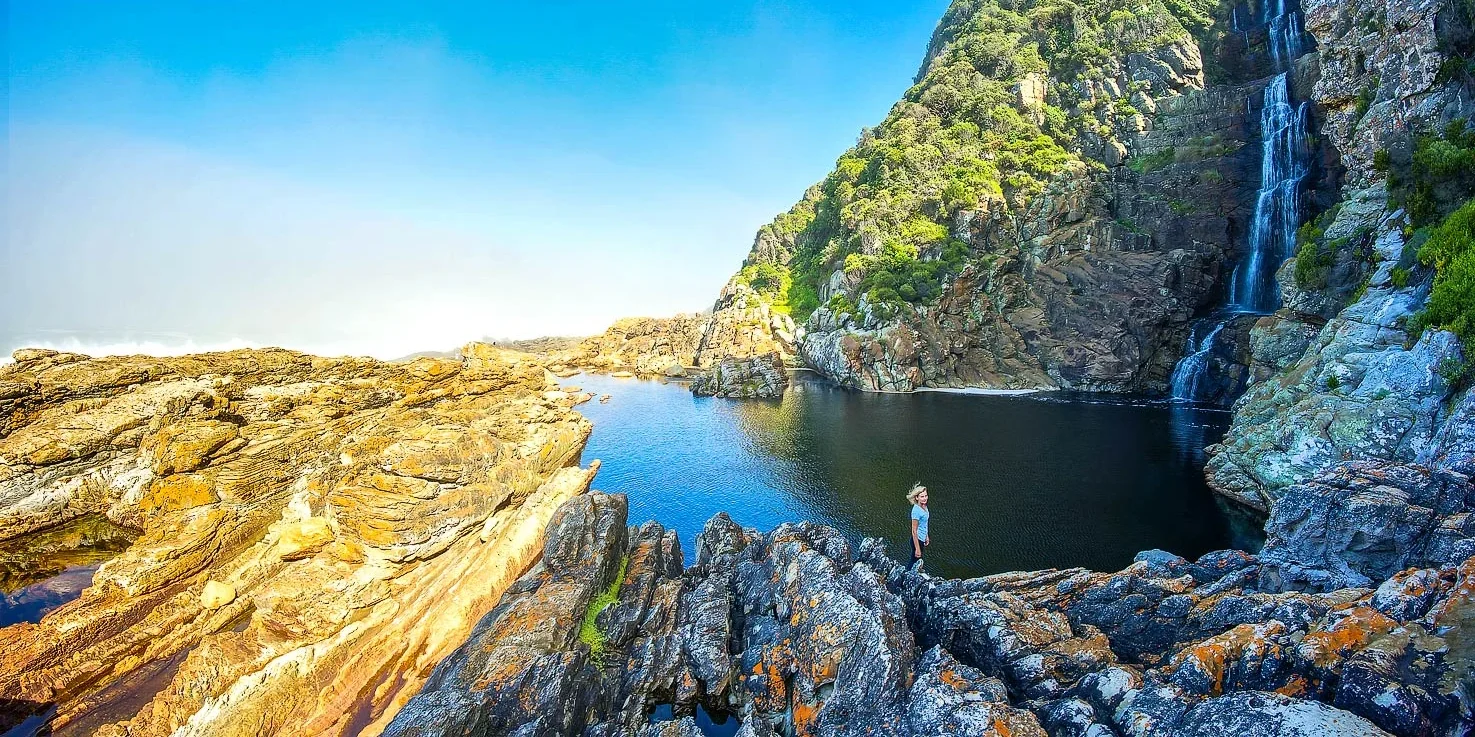
One of the main problems of travelling as a family is that you are often obliged to travel during peak seasons, when availability is usually very tight in all the best properties.
It is really important to book as early as you can.
It is worth bearing in mind that many of the best camps and lodges only have 5 or 6 rooms, so finding availability for multiple rooms during the more popular times of year can get tricky.
If you intend to travel in a group of six or more, then you should probably try to plan at least 9-18 months ahead.
Don’t worry if you can’t plan ahead, just get in touch and we will try to work wonders.
If a trip ever starts to become significantly distorted by a lack of availability, we will always let you know. We would prefer that you delay by a year than have a second rate experience.
make sure to book as early as you can
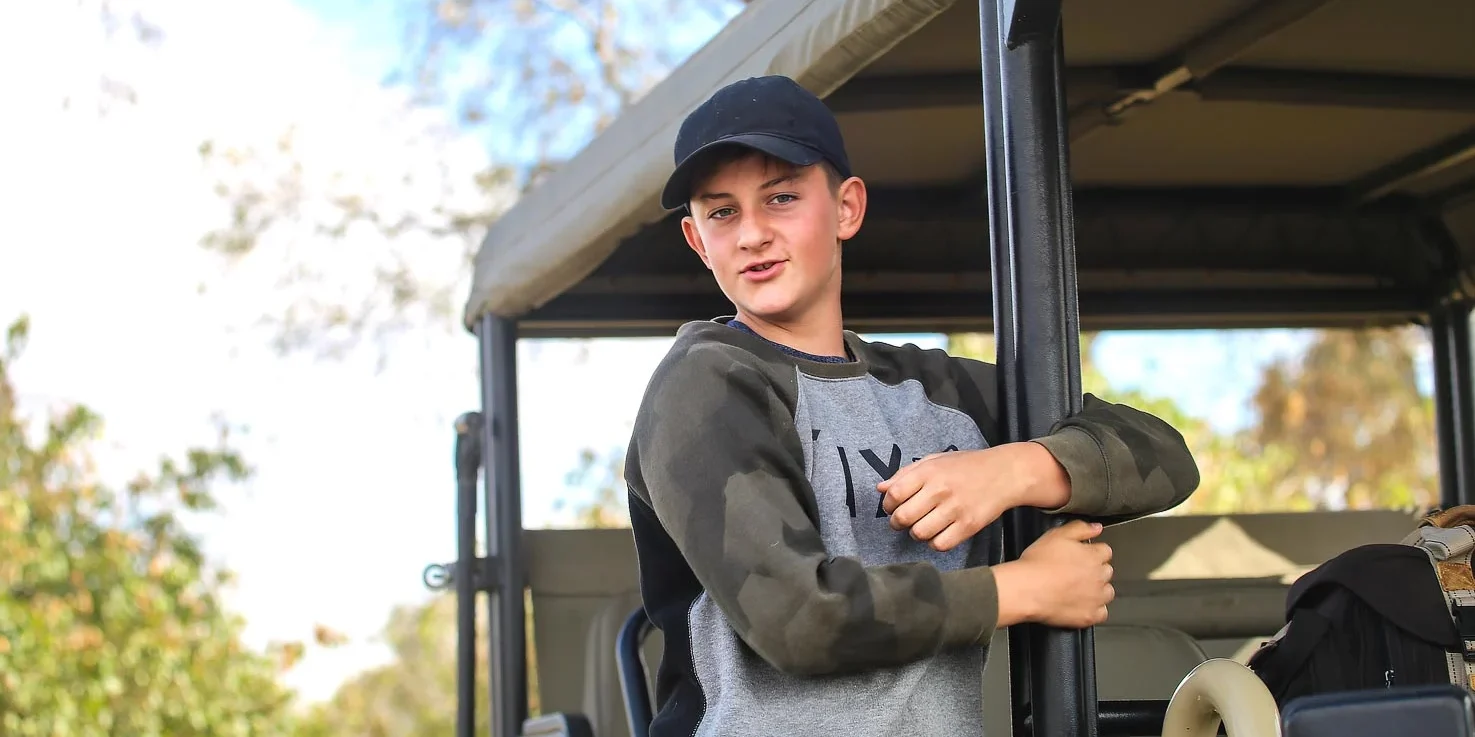
Extraordinary tailor-made adventures,
from earthy and edgy to easy and extravagant
From around USD 2500 per person, you set the ceiling
Sample Trips
Here are some of our popular trip shapes
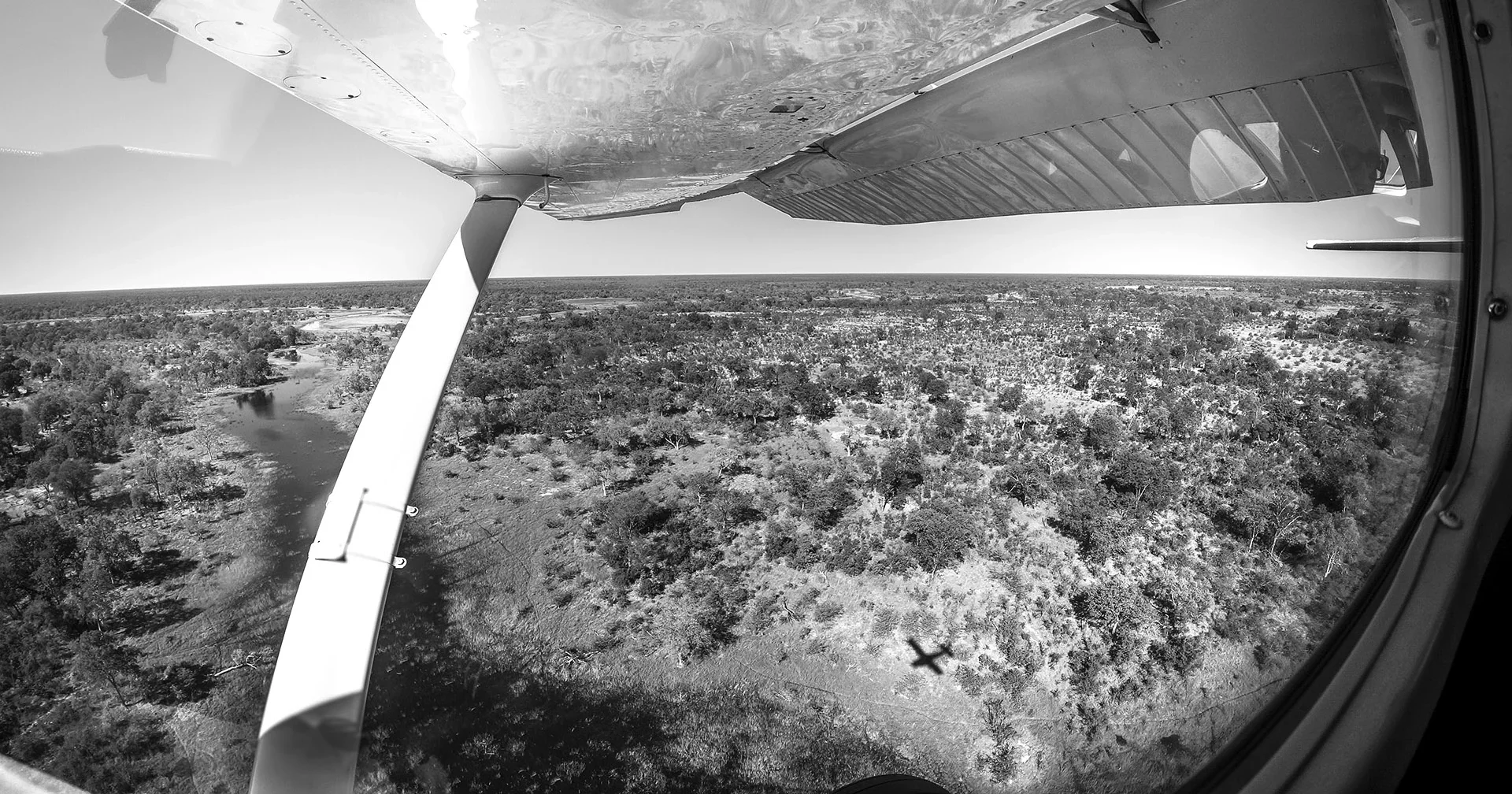
Get started on your trip
It’s never too soon to get in touch, we are here to help with every stage of your planning.
Where Next?
Where Next?
We offer trips to dozens of fabulous countries.
Might one of these might be your next great adventure?

Please rotate your screen.
